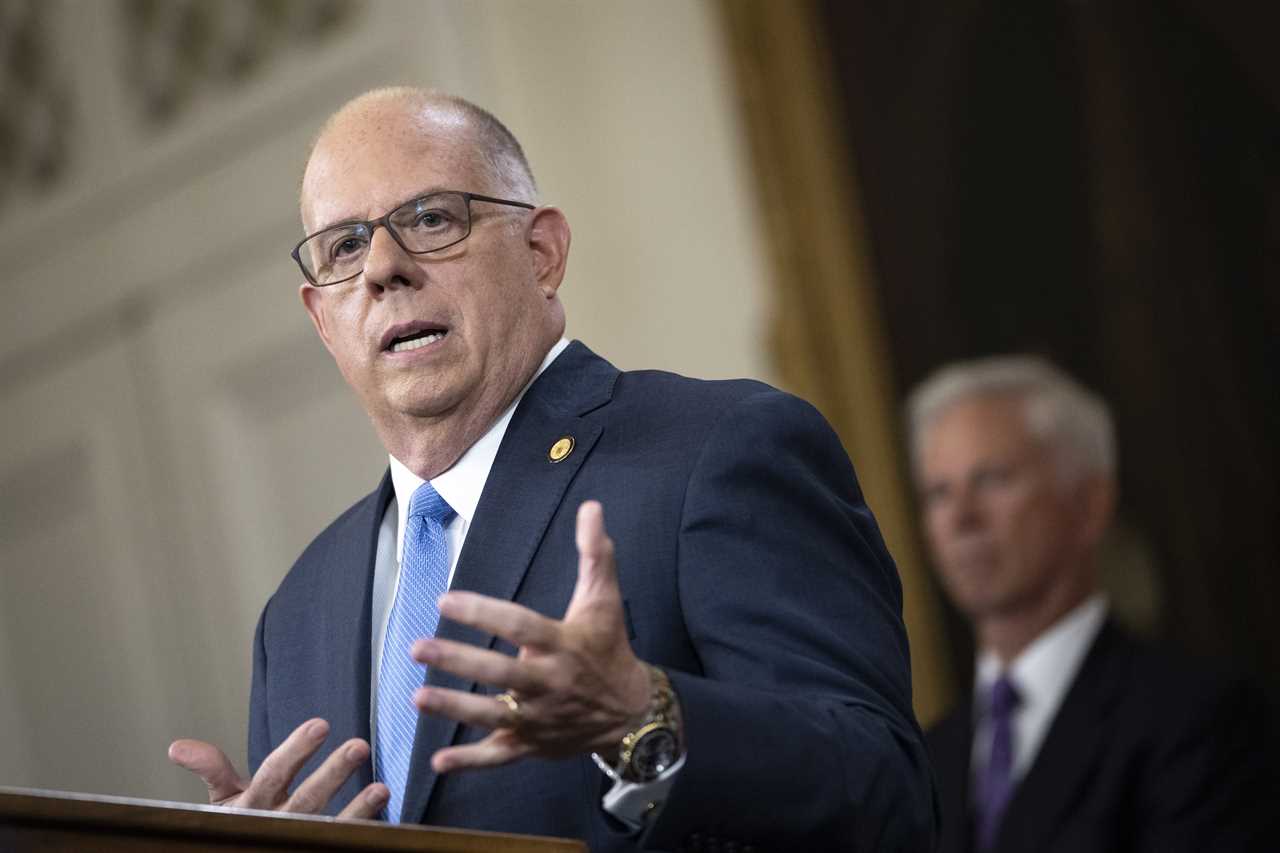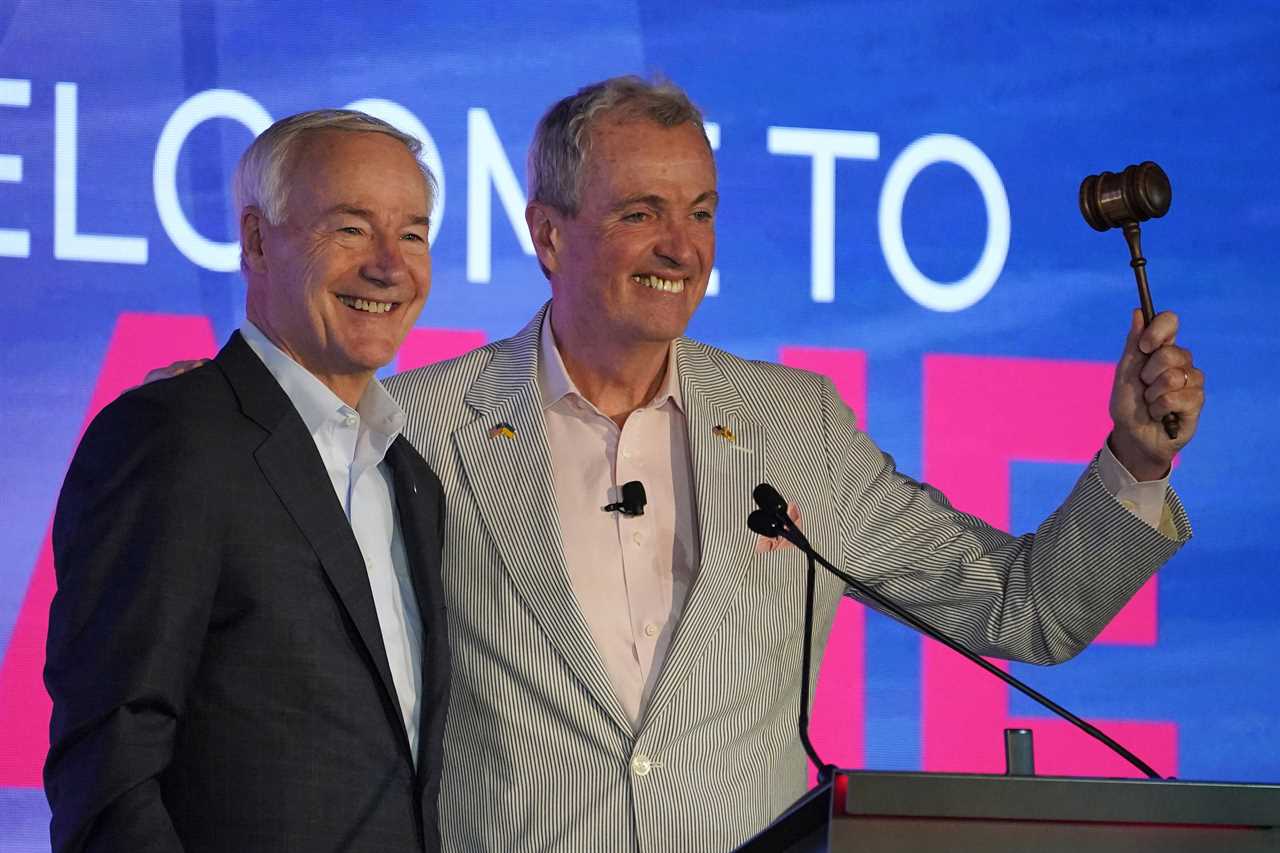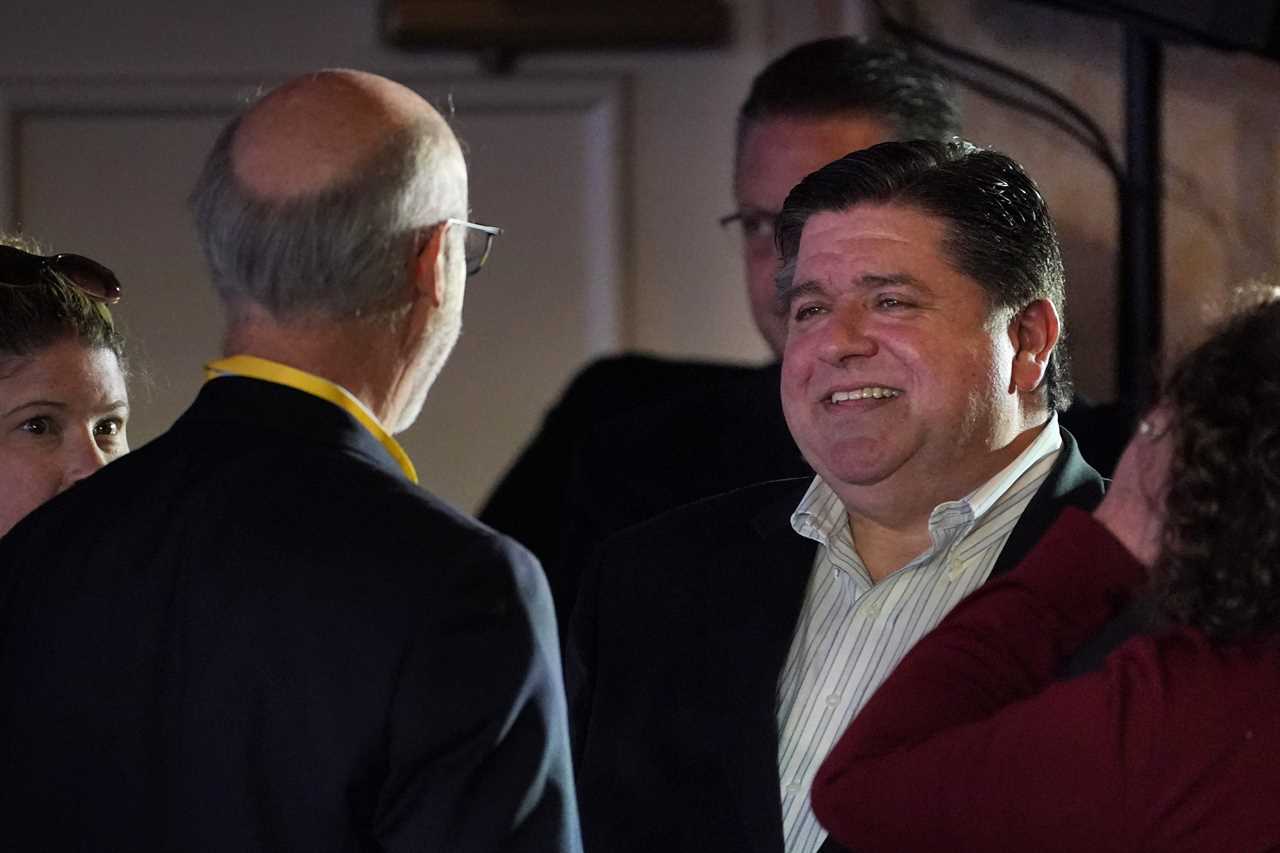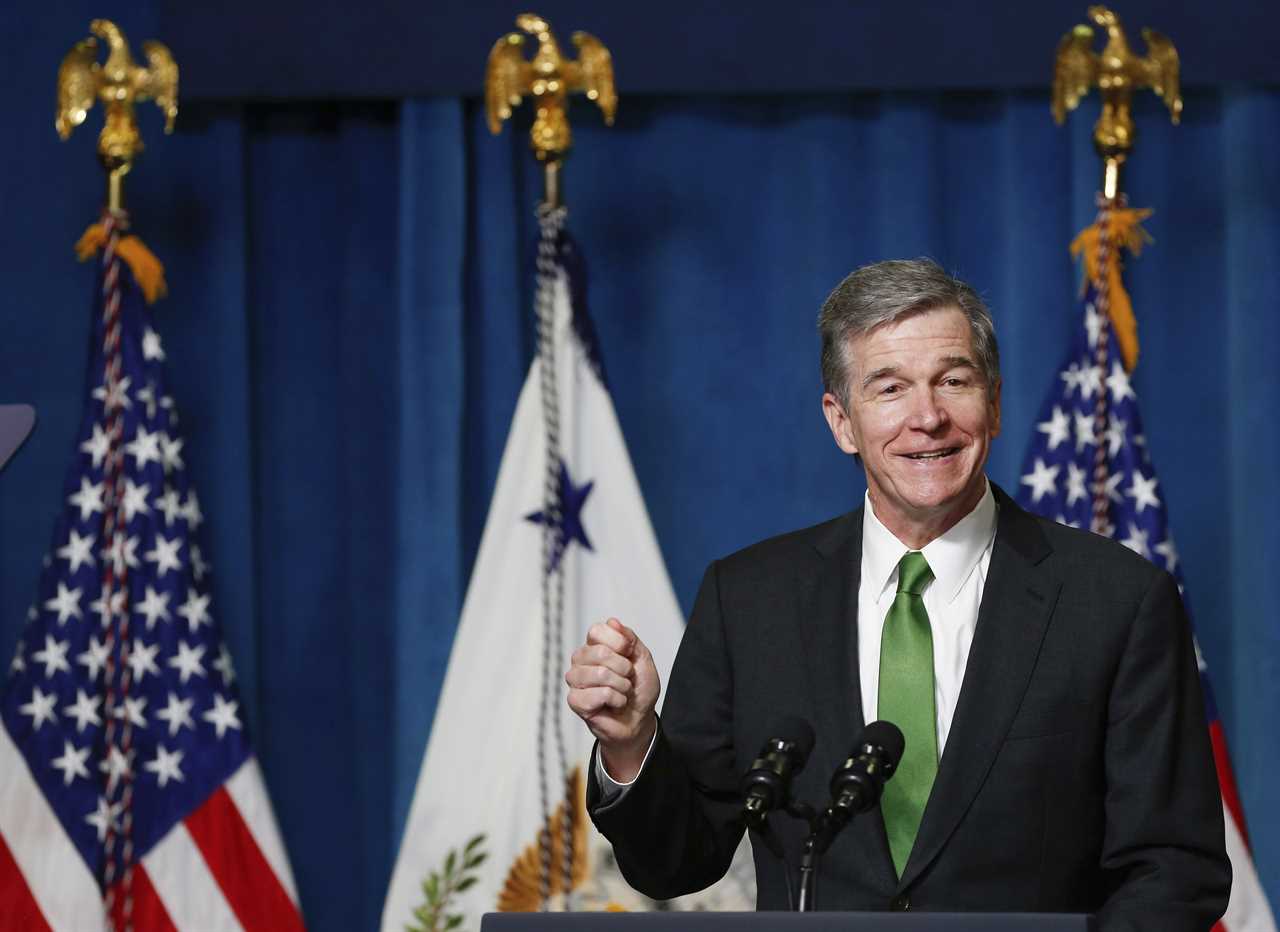
PORTLAND, Maine — Congress is making the presidency a grind and the Supreme Court is kicking policymaking to the states. Being a governor, then, should be one of America’s hottest jobs.
Yet so many governors are still angling to be president.
Last month’s string of Supreme Court decisions — rolling back five decades of abortion rights, curtailing the Biden administration’s ability to regulate greenhouse gas emissions and dismantling state-level gun controls — has heaved new, urgent responsibilities onto the laps of the nation’s executives. They can expand or contract access to reproductive care for millions of people with the stroke of a pen. Control over other everyday activities could be next, and some governors are comfortable where they are.
“Being a governor is one of the most important jobs in America right now, without a doubt,” New Hampshire Gov. Chris Sununu, a Republican who’s up for reelection this fall, said at the National Governors Association summer meeting in Maine.
“America as a whole has stepped up and said, ‘Look, governors are the ones that really have an impact on our lives, so let’s focus on governorships and mayorships and local government.’”
Still, while Washington’s gridlock has turned some governors off of running for Congress and left a Democratic president’s agenda in limbo, the toxicity for others reads more like a road map to the White House.
“That’s really the only reason for considering it, is because of the complete divisiveness and dysfunction in Washington that everyone’s completely frustrated with,” Maryland Gov. Larry Hogan said in an interview.
“Somewhere between 60 to 70 percent of the people in America don’t want Joe Biden or Donald Trump to be president,” Hogan, a term-limited Republican who’s teased a possible 2024 presidential bid, added. “They’re looking to move in a completely different direction.”

A quarter of the 18 governors who traveled to Maine for the NGA conference this week have been floated as potential 2024 presidential contenders — Hogan, Sununu and New Jersey’s Phil Murphy, the association’s new chair, among them.
But governors and political operatives affiliated with both parties say the latest crop of Supreme Court decisions have shown voters how consequential their governors, attorneys general and state lawmakers can be and could galvanize turnout in state-level elections.
That same heightened profile could also give governors a shinier launching pad for a White House bid, especially if they think they can crack an electorate that’s soured on leaders in Washington. A New York Times/Siena College poll released this week found 64 percent of Democrats don’t want Biden as their nominee in 2024 and roughly half of Republicans don’t want Trump.
“There’s more action going on as a governor,” Doug Rubin, an architect of former Democratic Massachusetts Gov. Deval Patrick’s first campaign, said in an interview. “But I argue that just gives these governors a bigger platform to run on.”
Governors got used to going at it alone during the early days of Covid-19. As the Trump administration downplayed the burgeoning pandemic, states fought among themselves — and at times against the federal government — for limited supplies of masks and ventilators. In place of federal mandates, governors pushed the boundaries of their executive authority through emergency orders, making unilateral decisions that dictated major components of daily life. Some watched their stars rise, and their press conferences becoming must-see TV for a nation battling a novel enemy with little guidance from the White House.
Two years later, that phenomenon is happening again. Governors have returned to the fore — not because of the coronavirus, which is surging once again, but because the Supreme Court overturned Roe v. Wade, pitting governors against each other in a battle over bodily autonomy not fought on this scale for more than a generation.
“There’s a shift, there’s no doubt about it,” Democratic Illinois Gov. JB Pritzker, who is seen as a 2024 presidential contender, said in an interview at the NGA meeting in Portland. “Attorneys general and governors are now going to be at the forefront of making decisions about the policy for the state or at least pressing forward on policies that will protect women’s rights.”
Even a ruling that took power away from states — the decision to nullify New York’s concealed carry law — has put a greater onus on blue-state governors to get inventive about how to tamp down gun violence without sweeping gun restrictions.

And the threat of more rollbacks to come from the court has Democrats warning that same-sex marriage, access to contraception and other rights could very well reach governors’ desks next.
“We have to be inherently more creative,” Pritzker said. “Because we have to deal with these issues, especially in a moment when Congress isn’t agreed on what the way forward is.”
The fall of Roe v. Wade has sent states to their corners. Red states moved swiftly to ban and restrict access to abortion, while blue-state governors are rushing to make their states safe havens for providers and border-crossing patients. And governors on both sides are burnishing their national profiles in doing so.
Democratic California Gov. Gavin Newsom revived his pandemic policy-fueled feud with Republican Florida Gov. Ron DeSantis — this time over reproductive rights. While California legislators are exploring a constitutional right to an abortion, Florida is working to enforce restrictions it put on the procedure this summer. The conflict has reignited talk of their respective presidential ambitions.
But before they can get to 2024, governors need to get through 2022.
There are 36 governor’s races playing out across the country this midterms cycle. Republicans hold more corner offices, and Arizona Gov. Doug Ducey, who co-chairs the Republican Governors Association, told Fox News while in Maine that he sees “opportunity to really expand this map.”
Democrats are likely to flip Massachusetts and Maryland, and believe Georgia and Arizona are in play. But the party is staring down tough fights to hold on to governor’s mansions in Michigan, Wisconsin, Nevada and Kansas.
North Carolina Gov. Roy Cooper, who chairs the Democratic Governors Association, said the Supreme Court decisions should serve as a wake-up call for Democrats to invest more in state-level races. And not just for governor — a single lawmaker can make the difference between a governor having veto power or being overridden by a legislature with opposing views.

“Republicans have known for a long time about the importance of governors and state legislative races. They spend a lot of time and money there,” Cooper said in an interview. “Democrats did not spend as much time on state legislative and governor’s races, and we’re paying for that now.”
Cooper believes the fight over abortion rights will help galvanize voters, particularly suburban women who are often key in close races. In the battleground states of Michigan, Wisconsin and Pennsylvania — all currently led by Democrats — who wins governors offices this fall could potentially decide abortion access for millions of people. Even before the Supreme Court’s Dobbs decision, concerns over the future of reproductive rights fueled a record-breaking first-quarter fundraising haul for the DGA’s campaign arm — though Democrats still trailed their Republican counterparts over that same period.
Governors' races are “more important than ever,” Cooper said. But, he acknowledged, “the election of the president is the most important thing.”
If the Supreme Court rulings have affected the presidential political calculus for governors, they gave little indication of it as they milled about a Holiday Inn in downtown Portland on Thursday.
Pritzker, a billionaire who’s fueled speculation about his presidential ambitions by addressing Democrats in New Hampshire and could potentially reach into his deep pockets to make sizable donations to governors and Democrats in battleground states, said he’s “entirely focused” on his reelection campaign. Sununu told Fox News something similar.
And Massachusetts Gov. Charlie Baker, a two-term Republican who declined to seek reelection this year and has repeatedly dismissed talk of running for higher office, was clear-eyed about the Supreme Court decisions.
“This is why we have elections,” Baker said. “People need to make their voices heard.”
----------------------------------------
By: Lisa Kashinsky
Title: Meh. White House-curious governors unfazed by D.C. gridlock.
Sourced From: www.politico.com/news/2022/07/15/meh-white-house-curious-governors-unfazed-by-d-c-gridlock-00046091
Published Date: Fri, 15 Jul 2022 12:01:49 EST






